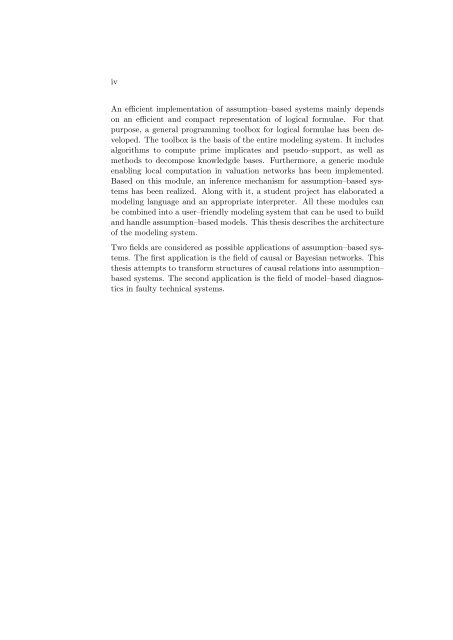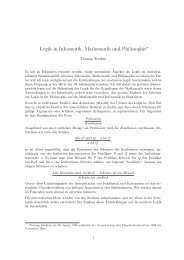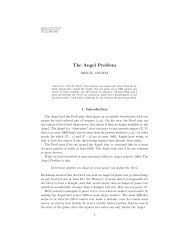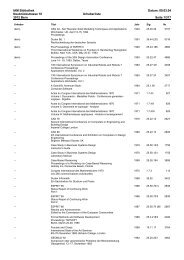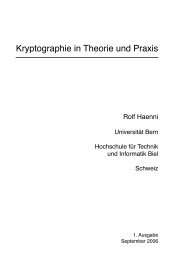Propositional Argumentation Systems and Symbolic Evidence Theory
Propositional Argumentation Systems and Symbolic Evidence Theory
Propositional Argumentation Systems and Symbolic Evidence Theory
You also want an ePaper? Increase the reach of your titles
YUMPU automatically turns print PDFs into web optimized ePapers that Google loves.
iv<br />
An efficient implementation of assumption–based systems mainly depends<br />
on an efficient <strong>and</strong> compact representation of logical formulae. For that<br />
purpose, a general programming toolbox for logical formulae has been developed.<br />
The toolbox is the basis of the entire modeling system. It includes<br />
algorithms to compute prime implicates <strong>and</strong> pseudo–support, as well as<br />
methods to decompose knowledgde bases. Furthermore, a generic module<br />
enabling local computation in valuation networks has been implemented.<br />
Based on this module, an inference mechanism for assumption–based systems<br />
has been realized. Along with it, a student project has elaborated a<br />
modeling language <strong>and</strong> an appropriate interpreter. All these modules can<br />
be combined into a user–friendly modeling system that can be used to build<br />
<strong>and</strong> h<strong>and</strong>le assumption–based models. This thesis describes the architecture<br />
of the modeling system.<br />
Two fields are considered as possible applications of assumption–based systems.<br />
The first application is the field of causal or Bayesian networks. This<br />
thesis attempts to transform structures of causal relations into assumption–<br />
based systems. The second application is the field of model–based diagnostics<br />
in faulty technical systems.


